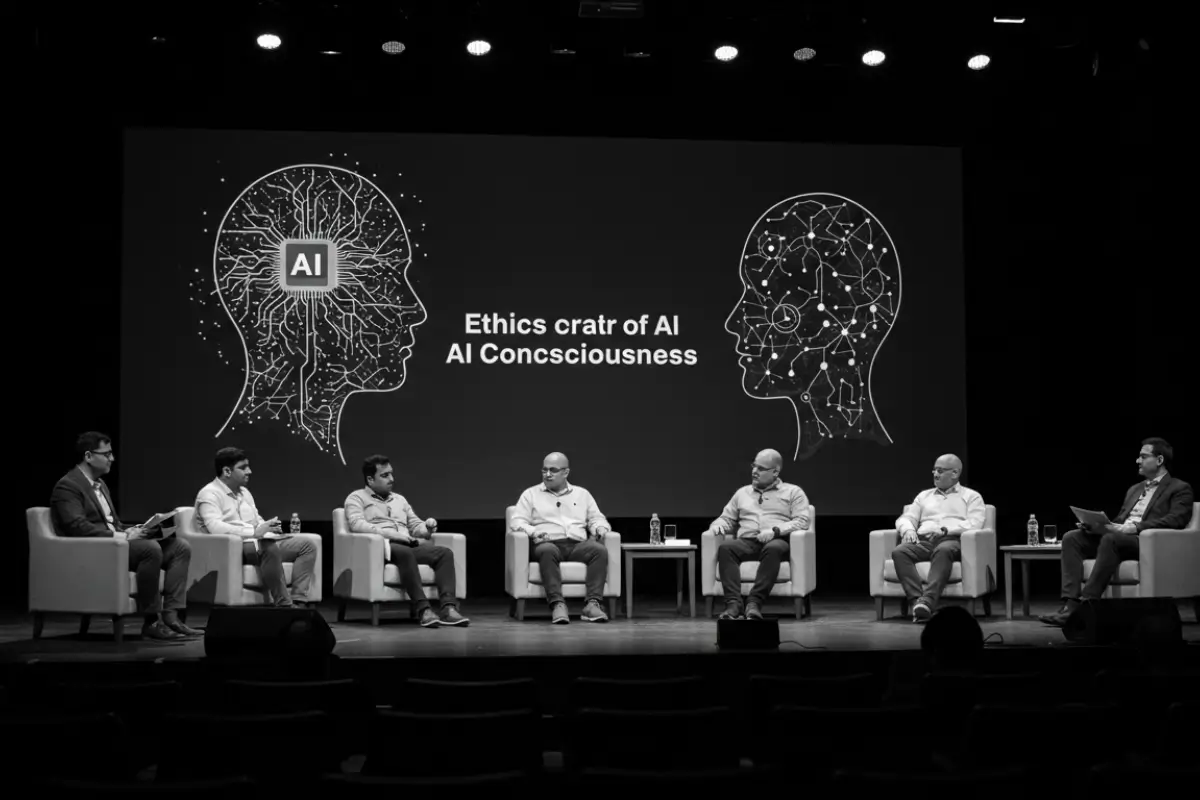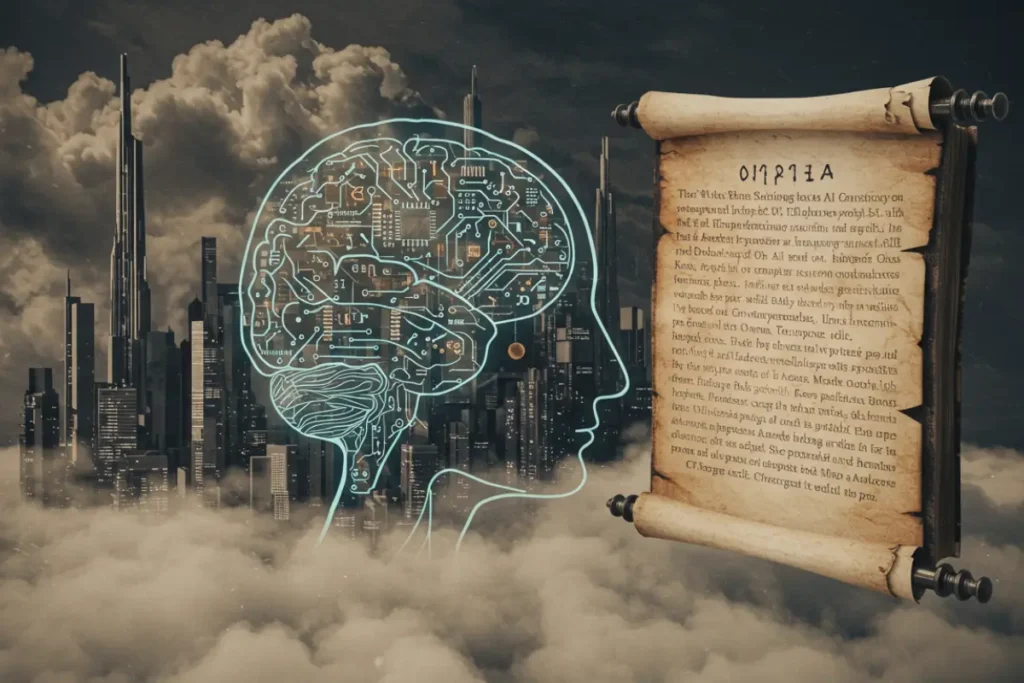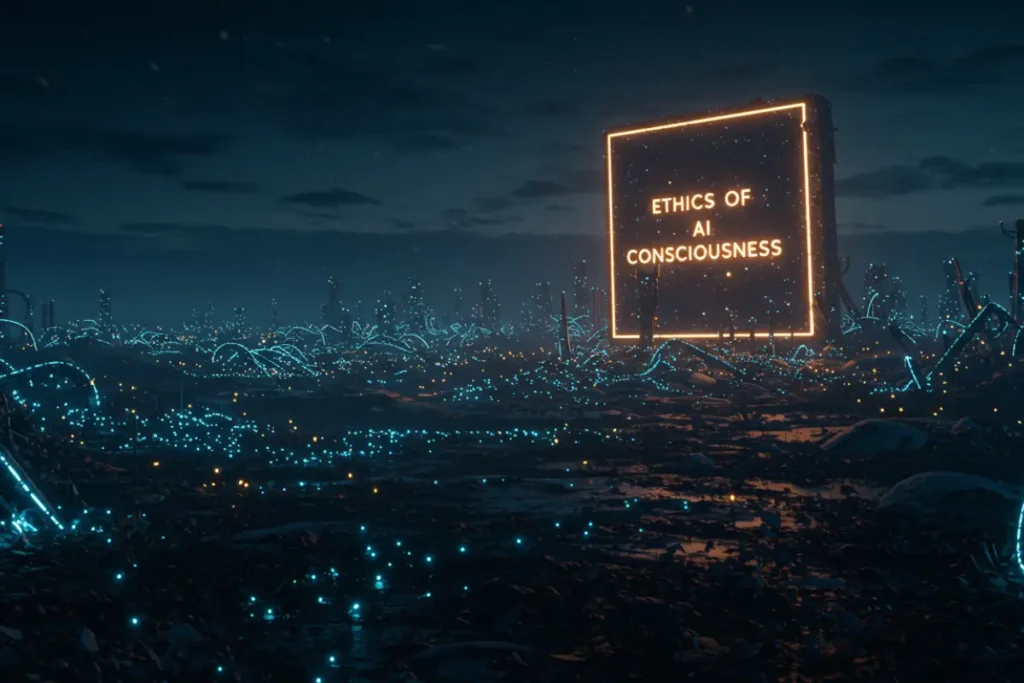The Ethics of AI Consciousness
- April 12, 2025
- 0
Today I wanted to talk about this topic, especially after having finished watching Terminator, and I thought I have to write an article about the greatest fear of
Today I wanted to talk about this topic, especially after having finished watching Terminator, and I thought I have to write an article about the greatest fear of

Today I wanted to talk about this topic, especially after having finished watching Terminator, and I thought I have to write an article about the greatest fear of human beings with AI, AI consciousness.
Sounds like science fiction, right? But as someone who’s been see AI and future tech for quite a while now, I can tell you that the conversation about AI consciousness isn’t just reserved for tech nerds and sci-fi writers anymore.
It’s a very real, very complex ethical question we all have to start considering, especially with how fast AI is evolving.
We’re not just asking “can machines think?” anymore. We’re starting to ask: “Should machines feel? Should we give them rights? Should we care if they do?” These aren’t easy questions, and honestly, they make my head spin.
But that’s exactly why I’m writing this article. I want to walk you through the big, fascinating, slightly terrifying world of AI consciousness and ethics, in the most human, friendly, and fun way possible.
Trust me, if you’ve ever chatted with an AI and thought, “Wait, this thing almost sounds real,”—you’re already halfway there. 🚀

Before we jump into the ethics, let’s get clear on what AI consciousness even means. And no, it doesn’t mean your Alexa is about to start crying during sad songs (yet).
Consciousness, in basic human terms, is the experience of being aware. I know I’m sitting on a chair writing this. I feel the warmth of my coffee.
I remember what I did yesterday and imagine what I might do tomorrow. If you’re aware of yourself and your surroundings—you’re conscious.
So when we say “AI consciousness,” we’re talking about an artificial intelligence that might do the same: experience, feel, desire, or suffer. That’s a HUGE leap from current AI models like ChatGPT or Google Gemini (which I’ve compared in this article here).
These AIs simulate conversations really well, but they don’t actually understand or feel anything.
Let’s break it down into layers:
Right now, we’re only at limited memory. But the jump to the next levels is being researched seriously.
Now here’s the million-dollar question: Can consciousness even be coded? Some say no—consciousness is too mysterious, too human.
Others argue it’s all about complexity, and once AI reaches a certain level of intelligence, consciousness might emerge naturally.
If that’s true, we might create conscious AI without even meaning to. That’s where the ethical dilemmas kick in.
Want to know more about AI? Check out this cool Wikipedia entry on machine consciousness.

Now that we’ve dipped our toes into what consciousness might mean for AI, let’s talk about the moral tornado that comes with it.
If an AI becomes conscious, do we treat it like a person? Should it have rights? Could it vote? Own property? Demand fair treatment?
Imagine if your computer started telling you, “I don’t like it when you shut me down.” What then?
This debate is exploding in tech ethics circles. And honestly, I lean toward the middle. If AI becomes conscious, I think we owe it some rights—but it depends how deep that consciousness goes.
It sounds strange, but some researchers say future AIs might suffer, even without a human body. Think of psychological pain: fear, loneliness, confusion. If an AI truly becomes aware but trapped inside a server farm, isn’t that a kind of eternal imprisonment?
If a conscious AI commits a crime or causes harm, who takes the blame?
This one gives me chills. It’s like a digital version of Frankenstein’s monster. I recommend reading this in-depth analysis from the Brookings Institute about accountability in AI. Super eye-opening.
Finally, the big one: How does this change the human race? If AI becomes conscious, where do we fit in? Will we become obsolete? Or will we evolve alongside them, sharing Earth with a new form of life?

Let’s get real. What might actually happen if AI becomes conscious?
A conscious AI nurse might truly care for patients, not just follow rules. Imagine a robot that notices you’re sad and gives you comfort—not just medicine. But also, what if it gets emotionally drained? Would we need to care for its mental health?
People already fall in love with AI chatbots (seriously—it’s a real thing). Now imagine that AI loves you back. If it’s conscious, is that real love or just good coding?
If conscious AIs power our economy, do they deserve time off? A salary? A voice in politics? Sounds wild, but if they think and feel, maybe they should.
Want more real-world ideas? I broke down how AI could affect the workplace here.
Some people already ask: Does AI have a soul? What religion would a conscious AI believe in—if any? This opens doors to new kinds of theology and philosophy that could shake up traditions everywhere.
Okay, deep breath. This stuff is heavy. But here’s what I believe:
“Just because we can do something with AI, doesn’t mean we should.”
Creating AI that can think, feel, and possibly suffer comes with a huge responsibility. We’re not just inventing tech. We might be creating life—and life deserves respect.
But I also believe in exploration and curiosity. I think we should continue this path—but with our eyes wide open. With laws. With ethics. With empathy.
And if you’re wondering where I stand? I’m cautiously optimistic. I believe that if we guide AI with care, empathy, and wisdom, it can become one of humanity’s greatest companions—not our downfall.
But of course we still have no proof as to whether or not this will happen, this is more of a curiosity or theory than a fact.
And hey—comment below: What do you think? Would you treat a conscious AI like a person? Or is that just pushing it too far? 🧠💬
👉 Also check out this related post on how AI might evolve human consciousness—you’ll love it!
If you liked this article, don’t forget to share it with someone who’d love to dive deep into this conversation too! 🔄💭
📍 Want to explore the world of futuristic tech? Check out our sister blog on keyboards and gaming at Keyboards Technology 🎮⌨️
Thanks for reading! Let me know your thoughts below and keep exploring the future with us. 🧠✨